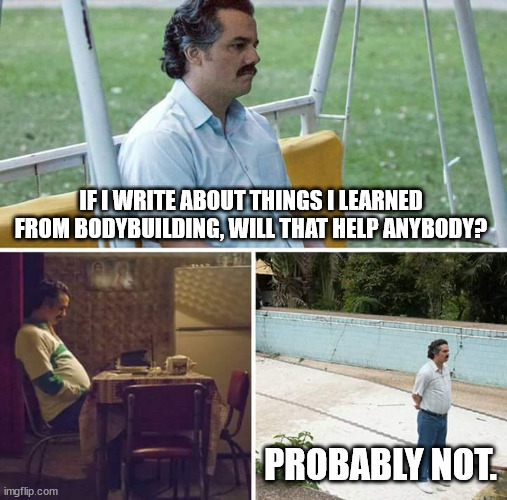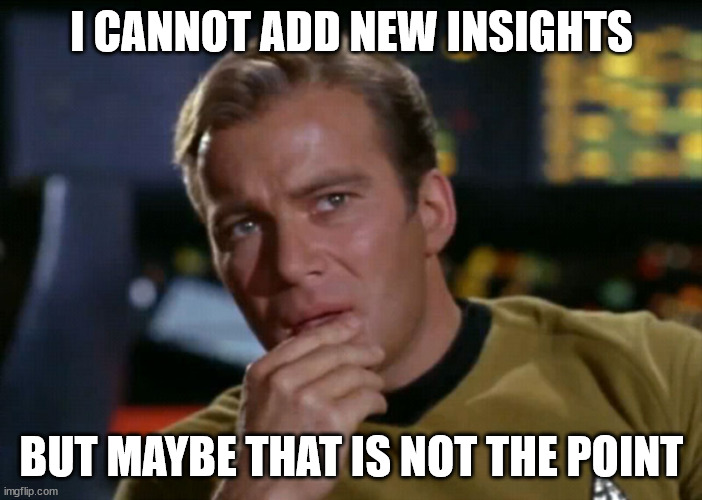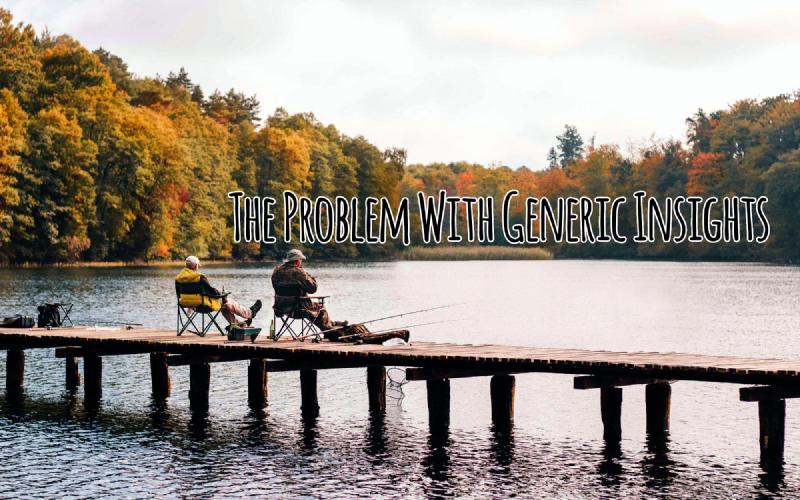Have you come across a “What X has taught me about Y” article recently? There are quite a few of them, some funnier than others:
- “What my wedding taught me about business” [1]
- “What My Wedding Taught me About Life & Work” [2]
- “6 Ways Fishing Reinforces Key Business Mentalities and Life Lessons” [3]
- “What a Tanning Salon Taught Me About Customer Experience” [4]
- “What Farming Taught Me About Life” [5]
From my perspective they all have one thing in common - They make sense. It is great storytelling, taking this thing that has nothing to do with business at first glance and extracting deeper meaning. It also helps readers relate, because hey, most people know what a wedding is. Or how to fish.
So it did not come as a surprise when a few months back there was a real surge of LinkedIn posts following exactly this pattern: “I did X, here is what it taught me about Y”. And as with all things that gain popularity and attention, a few people took it too far [6] to ride the wave. Some people were annoyed, others picked it up as a meme [7][8].
While I enjoyed the memes, it also gave me the feeling that it is now click-bait and annoying to post “What X has taught me about Y” articles. It made me pause the work on an article that I was writing, that followed the same pattern. If I want to share my insights, why should that stop me? Because these insights I had are not new. Would I add any value for anybody?

Room For Interpretation
This was sitting in the back of my head for months. Until I recently heard in a podcast [9] how ChatGPT was prompted to “describe humanity with a single word”. It generates answers like “Curiosity” and “Resilient”, which is a very deep answer. The longer you think about it, the more sense it makes. But that’s not because the answer is so amazing. We can easily dish out a long list of other words, like “Destructive”, “Building”, “Adaptable”, “Complex”, and each of them would have the same effect. They don’t have a deeper meaning on their own, they get a deeper meaning because the reader finds a deeper meaning.
First, they find the deeper meaning because of the context - They know the prompt. If you are given the word “Complex” how you understand it differs when you know the prompt was “Describe the human race with a single word” versus “Describe a dieselmotor with a single word”.
Secondly, the reader’s experience is contributing as well. If we both read the same word for the same prompt, I will interpret the meaning from a different perspective than you will. We are both interpreting our own thoughts into this.
The same thing happens when you shorten an insight, when you strip away the details and explanations. When you make it generic, you give room for interpretation.
Sometimes this might be on purpose, but often it is not. In the company I work for, all newjoiners get a crash course into our company principles. I have hosted the “Every Day Is Day One” principle talk several times and love to ask people what they think it means before explaining. Some people guess it right, most do not - But they find their own reasonable explanation. That’s why principles are more than just their title, they need to be explained, they need to be exemplified with situations. Apple’s famous principles “Empathy, Focus, Impute” [10] are too generic, they need the subtext. Others, like Tom Cohen’s “We might be wrong, but we are not confused” [11] are less generic, but also leave too much freedom to interpret.
We can always abstract a learning to make it more generic. The more generic you make it, the more situations it will apply to. At the same time, it is losing its core more and more.
Adding Value
When I asked myself if my article would add value for anyone if it does not bring new insights, I got it all backwards. It is not about the insight itself, it is about how this insight was discovered. Taking your reader on a journey with you, helping them relate to your situation and then following your learning might unlock actually understanding an insight, opposed to interpreting it on their own. Arnold Schwarzenegger wrote a whole book to explain his principle of “Be useful” [12], which also acts partially as a biography.
This will enable everybody, people are different. But there will be people who can follow your trail of thought, who will understand your point. If only a single person learns something from your journey for their own journey, you added value.

I will now get back to writing “What bodybuilding has taught me about engineering” and “What eating cake has taught me about managing expectations”.
References:
- [1] https://www.linkedin.com/pulse/what-my-wedding-taught-me-business-lucy-collignon
- [2] https://www.linkedin.com/pulse/what-my-wedding-taught-me-life-work-eliza-pesuit-qutpe
- [3] https://www.entrepreneur.com/growing-a-business/6-key-lessons-fishing-has-taught-me-in-business-and-in-life/448836
- [4] https://www.youtube.com/watch?v=bqqsawP1AjQ
- [5] https://medium.com/@aarongerry/the-growing-season-what-farming-taught-me-about-life-16fd646689ef
- [6] https://www.linkedin.com/posts/bryanshankman_i-proposed-to-my-girlfriend-this-weekend-activity-7191124158020255745-SIrp/
- [7] https://www.linkedin.com/posts/jeanettefullington_dogsinmarketing-marketing-marketingcoordinator-activity-7247699206897819648-Lepj
- [8] https://www.linkedin.com/posts/thibautsouyris_heres-what-buying-a-new-car-taught-me-about-activity-7249403192235507712-smEj
- [9] https://hanselminutes.com/961/ai-storytelling-with-michael-washington
- [10] https://www.forbes.com/sites/frederickallen/2011/11/07/the-three-principles-that-always-drove-apple/
- [11] https://youtu.be/YrUq8JUkQls?si=Kx54XBBiXNsaysd-&t=161
- [12] https://beusefulbook.com/
